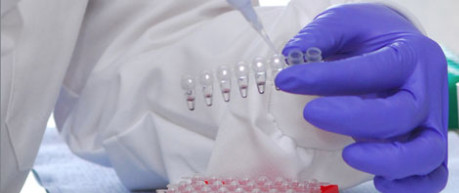Tuesday 6th March 2018, 10:00am
Last year was a successful one for life sciences in Scotland. 2017 was strong on growth, with a record £152 million of investment in the sector, and we continue to lead the world in medical innovation and research.

Scotland has a strong heritage in life sciences and in 2017 the sector continued to produce new ideas and products.
There have been several companies based in Scotland with products in clinical trials with positive results, including NuCana, DySIS Medical, Kyowa Kirin International, Novabiotics, Quotient, Lamellar Biomedical, Calcivis, MGB Biopharma, and Omega Diagnostics.
"We also have the opportunity to improve the lives of people around the world. Innovations in the bioeconomy are addressing environmental and food security concerns through industrial biotechnology, agritech and animal health. As a sector, there is so much work taking place to help address global issues."
Dave Tudor, Co-chair, Industry Leadership Group for Life Sciences ScotlandThe Industry Leadership Group for Life Sciences Scotland – comprising leading figures from the private sector as well as senior representatives from the public sector including Scottish Enterprise and the Scottish Government – has a “2025 vision” that aims to grow the turnover of the life sciences sector to £8 billion a year. This is an ambitious but achievable target that can be met through the creation of a dynamic and competitive environment with a robust business base, capable of attracting key skills, talent and investment.
In recent years, Scotland has seen many positive developments in the sector, including the creation of six innovation centres aimed at connecting academia with commercial companies to turn world-leading research into commercial success.
Our global reputation continues to grow with the announcement of three significant international collaborations in addition to the establishment of company offices, subsidiaries and contracts in the US. Maximising our global footprint and developing an international mindset will enable increased internationalisation in the sector.
There are a range of new opportunities for the life sciences industry to focus on in Scotland. A shift towards digital technologies will ease the burden on healthcare provision if, for example, patients could be monitored with wearable tech at home, easing up pressures on hospital beds. Advances in genomics and big data are enabling medical professionals to make more accurate diagnoses and this is making the future for precision medicine and the improvement of patient outcomes possible. We are continuing to build upon the existing expertise in genomics and precision medicine we have in Scotland.
We also have the opportunity to improve the lives of people around the world. Innovations in the bioeconomy are addressing environmental and food security concerns through industrial biotechnology, agritech and animal health. As a sector, there is so much work taking place to help address global issues.
What we need to do to grow the sector is to enhance the collaboration between business, academia and the NHS. Known as the “Triple Helix”, this unique ecosystem is the link in delivering success in innovation and commercialisation in Scotland. By working together we can provide the conditions to nurture our entrepreneurial talent and allow them to develop, which is critical in reaching our target of £8bn by 2025. Helping start-ups and small and medium-sized enterprises to scale up quickly and efficiently will boost the economy and create more jobs in the sector. We have a strong base of talented and inventive people working in the industry in Scotland and we want to attract more talent into the sector.
The life sciences sector in Scotland has the opportunity to grow, capitalising on the success so far. There is so much potential to accelerate and drive forward the industry with positive outcomes for the Scottish economy as a whole.
By Dave Tudor, Co-chair, Industry Leadership Group for Life Sciences Scotland
Source: The National